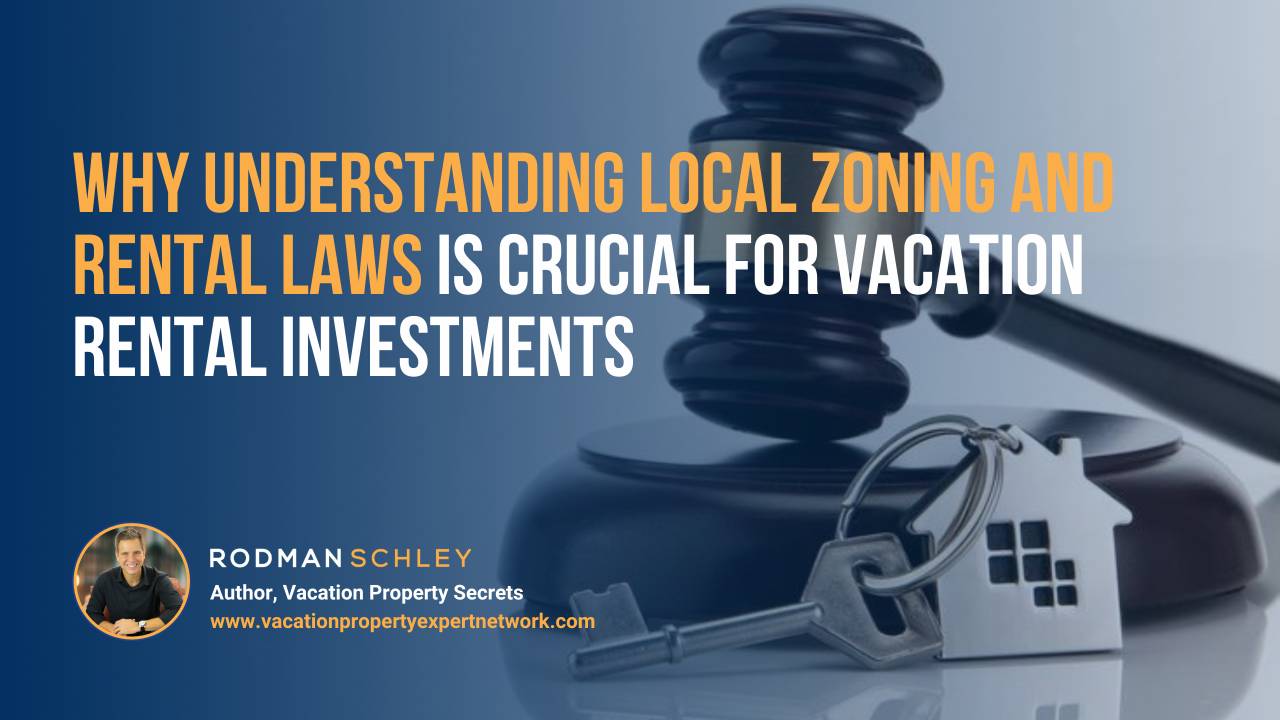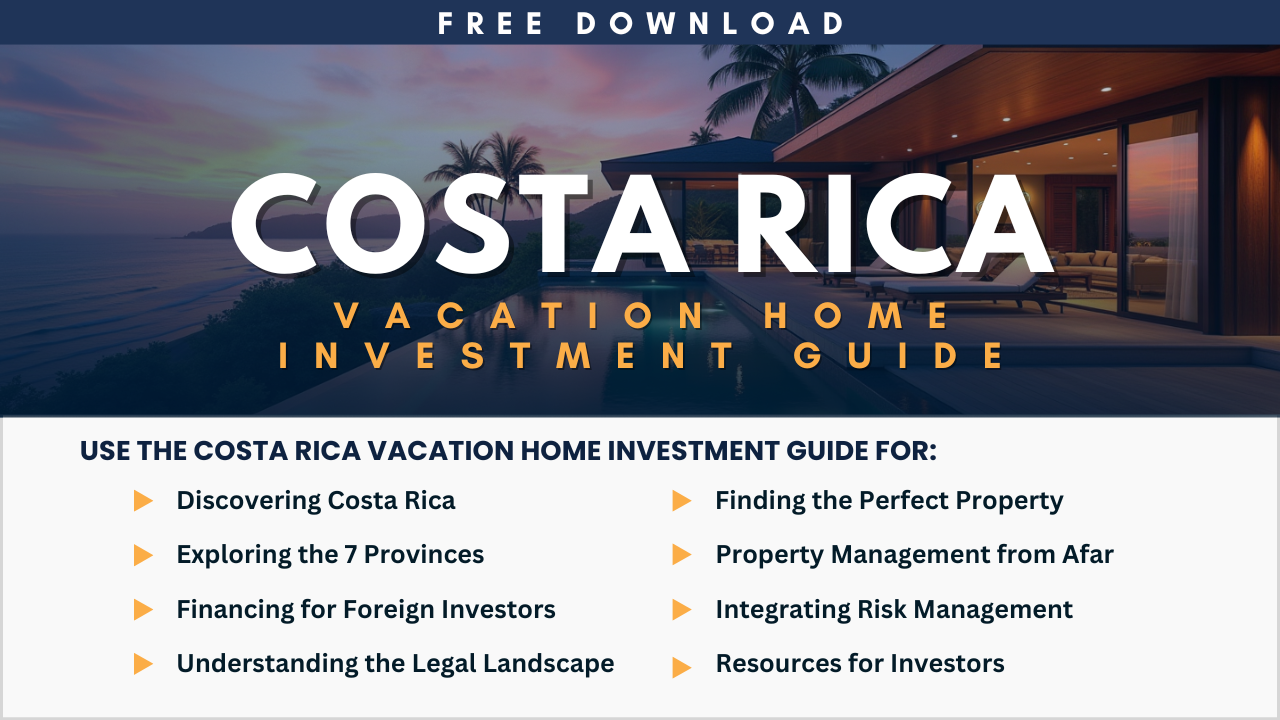
Why Understanding Local Zoning and Rental Laws is Crucial for Vacation Rental Investments
Investing in vacation rentals can be a highly profitable venture, offering both steady rental income and potential property appreciation. However, many investors overlook a critical aspect of the process—local zoning and rental laws. These regulations can significantly impact the feasibility and profitability of your investment. Without a clear understanding of these laws, you could face costly fines, legal issues, or even the inability to rent out your property.
In this blog post, we’ll discuss why understanding local zoning and rental laws is essential for vacation rental investments. We’ll also cover how to navigate these regulations and ensure that your property complies with local requirements, ultimately safeguarding your investment and ensuring long-term success.
Local Zoning Laws Can Impact Where You Can Operate Vacation Rentals
Zoning laws dictate how properties in a given area can be used. These laws are put in place by local governments to regulate land use and ensure that certain types of businesses or activities are conducted in appropriate locations. For vacation rental investors, zoning laws are especially important because not all areas allow short-term rentals, and some areas impose strict restrictions or require permits.
Why Zoning Matters for Vacation Rentals:
- Allowed vs. prohibited areas: Some cities or neighborhoods have strict zoning laws that prohibit vacation rentals in certain areas. For example, short-term rentals may be restricted in residential or historic districts, while other areas may be zoned specifically for tourism or commercial use. Without understanding where your property falls in the zoning classification, you might find yourself in violation of local laws.
- Changes to zoning laws: Zoning regulations can change, and municipalities may update their rules to restrict or allow short-term rentals. Staying informed about these changes is essential for maintaining compliance. For example, some cities have passed laws that limit the number of days a property can be rented out on a short-term basis, such as 30 days per year.
- Penalties for non-compliance: Operating a vacation rental in an area that is not zoned for short-term use could result in significant fines, cease-and-desist orders, or even the forced removal of your rental listing. Being unaware of zoning laws could lead to unnecessary financial loss.
Before investing in a vacation rental property, research the zoning laws in the area. Check with local planning departments or consult with a real estate attorney to make sure your property is in an approved zone for short-term rentals.
Rental Regulations Protect Guests, Landlords, and Communities
Local governments implement rental laws to protect both guests and landlords, ensure that rental properties meet certain health and safety standards, and preserve the quality of life in the surrounding community. These regulations can cover a wide range of topics, including occupancy limits, noise restrictions, safety measures, and more.
Key Rental Laws to Be Aware Of:
- Maximum occupancy limits: Many municipalities set occupancy limits for short-term rentals based on the number of bedrooms or square footage of the property. These laws are designed to prevent overcrowding and ensure that the property can safely accommodate the number of guests.
- Health and safety codes: Short-term rental properties are often subject to building codes, fire safety regulations, and health codes to ensure that they meet specific safety standards. For instance, properties may be required to have smoke detectors, fire extinguishers, or emergency exit plans.
- Insurance requirements: Some cities require landlords to carry specific types of insurance for short-term rentals, such as liability insurance or property damage coverage. Understanding the insurance requirements can help you avoid potential financial losses in case of an accident or damage to your property.
- Noise and nuisance ordinances: Many communities have noise ordinances in place to prevent excessive disturbances in residential neighborhoods. If your rental is located in a quiet area, there may be restrictions on late-night noise, parties, or large gatherings, which could lead to fines or complaints from neighbors.
Ensuring compliance with rental laws not only protects your property and your guests but also contributes to maintaining a good relationship with the local community. This helps you avoid legal issues and penalties that could harm your rental’s reputation.
In many cities, operating a vacation rental requires obtaining a business license or short-term rental permit. These licenses and permits are designed to ensure that vacation rental operators comply with local laws, pay appropriate taxes, and follow safety regulations. Operating without the proper licenses can result in fines, penalties, or being forced to shut down the rental.
How to Navigate Licensing and Permitting:
- Apply for permits: Before listing your property, verify the permit requirements for short-term rentals in the area. This may involve submitting an application, paying a fee, and undergoing an inspection to confirm the property meets all legal and safety standards.
- Register with local authorities: Some cities require vacation rental owners to register their property with the local government. This allows the authorities to track rental properties and ensure compliance with the law.
- Obtain the correct insurance: Ensure that your property is insured according to the local regulations. Some areas require specialized insurance for short-term rentals, covering potential liabilities such as property damage, guest injuries, or third-party claims.
By securing the necessary licenses and permits, you ensure that your property is compliant with all local rules, reducing the risk of fines and providing peace of mind for both you and your guests.
Taxes and Fees Related to Vacation Rentals
Understanding the tax implications of operating a vacation rental is crucial to avoid potential tax-related issues and ensure that you remain in compliance with local laws. Vacation rental owners are often subject to sales taxes, occupancy taxes, and other local fees that can vary significantly by location.
Common Taxes and Fees to Consider:
- Transient occupancy tax (TOT): Many cities and counties impose a transient occupancy tax or hotel tax on short-term rentals. This tax is typically a percentage of the rental income and is collected from guests, often added to the booking fee. As a property owner, you may be required to collect and remit this tax to the local government.
- Income taxes: Income earned from vacation rentals is subject to federal and state income taxes. It’s important to consult with a tax professional to ensure you’re reporting rental income accurately and taking advantage of any potential tax deductions.
- Registration fees: Some jurisdictions require vacation rental owners to pay an annual registration fee for the privilege of renting out their property on a short-term basis. These fees can vary by city or region.
- Property taxes: In addition to short-term rental taxes, you’ll still be responsible for property taxes. However, some jurisdictions may offer discounts or tax incentives for properties that meet certain green standards or are certified as vacation rental properties.
Consulting with a local tax expert or real estate attorney can help you navigate the complexities of vacation rental taxation and ensure you remain compliant with all applicable laws.
Avoiding Potential Legal Issues and Fines
Neglecting to comply with zoning, rental, and tax regulations can lead to significant legal issues and fines, which can ultimately reduce your investment’s profitability. For instance, operating a vacation rental without the necessary permits or exceeding occupancy limits can result in hefty fines or even forced shutdowns of your rental business.
How to Avoid Legal Issues:
- Stay updated on changes in laws: Local regulations related to vacation rentals can change frequently. Stay updated on any new legislation or amendments to existing laws that could affect your business.
- Consult with experts: If you’re unsure about the legal requirements, it’s always a good idea to consult with a lawyer or real estate professional familiar with vacation rental laws in your area.
- Document everything: Keep detailed records of your licenses, permits, and tax payments to ensure compliance and protect yourself in case of an audit or dispute.
By understanding and complying with local zoning, rental laws, and tax regulations, you can avoid legal headaches and focus on growing your vacation rental business.
Conclusion
Understanding local zoning and rental laws is absolutely crucial for vacation rental investments. These regulations impact everything from where you can operate your vacation rental to how much you can charge and what you need to pay in taxes. By familiarizing yourself with local laws and ensuring compliance, you protect your investment, avoid legal issues, and maintain a strong reputation as a responsible rental host.
Before purchasing a vacation rental property, always conduct thorough research into local zoning, licensing, tax obligations, and safety regulations to ensure your investment is set up for success. Staying informed and compliant not only saves you from potential fines but also helps you build a long-term, profitable vacation rental business.
Happy investing, and may your vacation rental thrive within the legal frameworks that support your success! For more tips on vacation rental investing and strategies for maximizing your returns, visit the Vacation Property Expert Network at:👉 www.vacationpropertyexpertnetwork.com.







